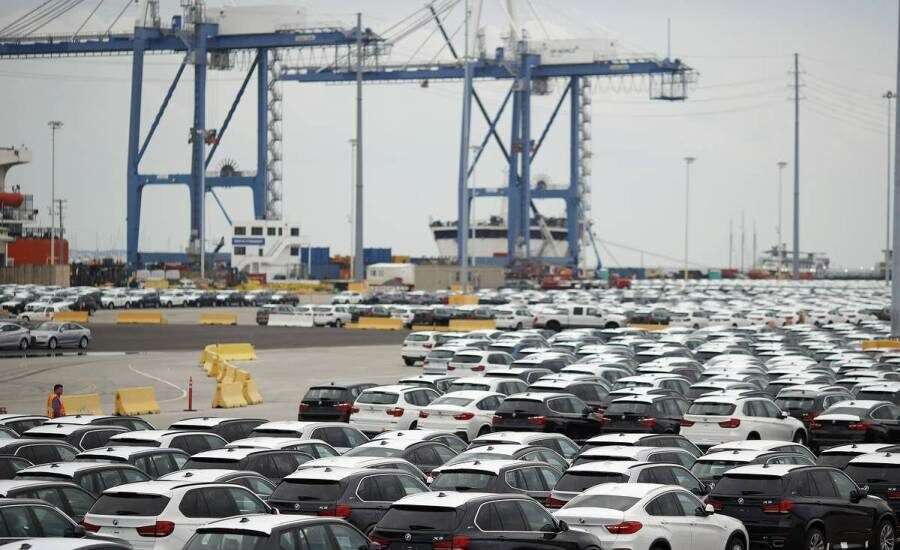Top Reasons Why People Avoid Buying Non-GCC Imported Cars in UAE
When buying a car in the UAE, one of the key decisions buyers face is choosing between a GCC-spec car and a non-GCC imported car. While non-GCC cars may sometimes be cheaper or have unique features, many people avoid them due to potential risks and hidden costs.
In this blog, Drive UAE explores the top reasons why people avoid buying non-GCC imported cars in the UAE.
1. Climate Incompatibility
The UAE’s scorching summers are a great challenge for any vehicle. Non-GCC cars, designed for milder climates, often struggle to cope. Their cooling systems, including radiators and air conditioning compressors, may not be robust enough to handle the extreme heat.
This can lead to frequent overheating, reduced engine performance, and premature wear and tear. Imagine being stuck in traffic during a 50-degree Celsius day with a struggling AC – not a pleasant experience. GCC-spec cars, on the other hand, are equipped with enhanced cooling systems, ensuring they can handle the intense heat without breaking a sweat.
2. Lack of Warranty and After-Sales Support
One of the most significant deterrents is the lack of official warranties and after-sales support for non-GCC cars. When problems arise, finding genuine spare parts and qualified mechanics can be a frustrating and expensive ordeal. Official dealerships typically don’t cover non-GCC models, leaving owners to rely on independent workshops, which may lack the necessary expertise or access to genuine parts.

This can lead to prolonged downtime and hefty repair bills. With a GCC-spec car, you enjoy the peace of mind that comes with a manufacturer’s warranty and readily available service and parts.
3. Resale Value Concerns
In the UAE’s car market, resale value is a crucial consideration. Non-GCC cars generally fetch lower resale prices compared to their GCC-spec counterparts. This is due to the perception that they are less reliable and harder to maintain.
Potential buyers are often wary of the potential challenges associated with non-GCC vehicles, leading to decreased demand and lower prices. Investing in a GCC-spec car can be a more prudent financial decision in the long run.
4. Electrical System Vulnerabilities
The UAE’s heat and humidity can wreak havoc on a vehicle’s electrical system. Non-GCC cars, designed for drier or cooler climates, may have electrical components that are not adequately protected against corrosion and heat damage.
This can lead to electrical failures, short circuits, and other issues. GCC-spec cars are often equipped with reinforced electrical systems and better insulation to withstand the harsh environment.
5. Variations in Specifications and Features
Non-GCC cars may come with different specifications and features compared to their GCC-spec counterparts. This can include variations in safety features, entertainment systems, and even basic components like air filters.

For example, air filters designed for a less dusty environment will not perform as well in the UAE. These variations can impact the overall driving experience and safety.
6. Potential for Hidden Issues
Buying a used imported car carries the risk of encountering undisclosed damage or modifications. Verifying the vehicle’s history can be challenging, especially for cars imported from distant markets.

There’s also the risk of unknowingly purchasing a flood-damaged vehicle, especially if it was imported from an area prone to flooding. Thorough inspections are crucial, but even then, hidden issues can surface later.
7. Insurance and Registration Difficulties
Insuring and registering a non-GCC car in the UAE can be more complex than dealing with a GCC-spec vehicle. Some insurance companies may charge higher premiums or even refuse to insure non-GCC models altogether.

Additionally, you might face complications during the registration process, as certain modifications may be required to meet UAE standards.
Conclusion
While the allure of a potentially lower price tag might make non-GCC imported cars seem attractive, the potential risks and challenges often outweigh the benefits. Climate incompatibility, lack of warranty, lower resale value, electrical vulnerabilities, specification differences, hidden issues, and insurance/registration difficulties are all compelling reasons to carefully consider your decision.
Ultimately, purchasing a car is a significant investment. Thorough research and a professional inspection are crucial, especially when considering a non-GCC vehicle. While there might be deals to be found, the peace of mind and reliability offered by a GCC-spec car are often worth the extra cost.

